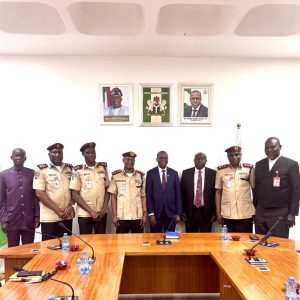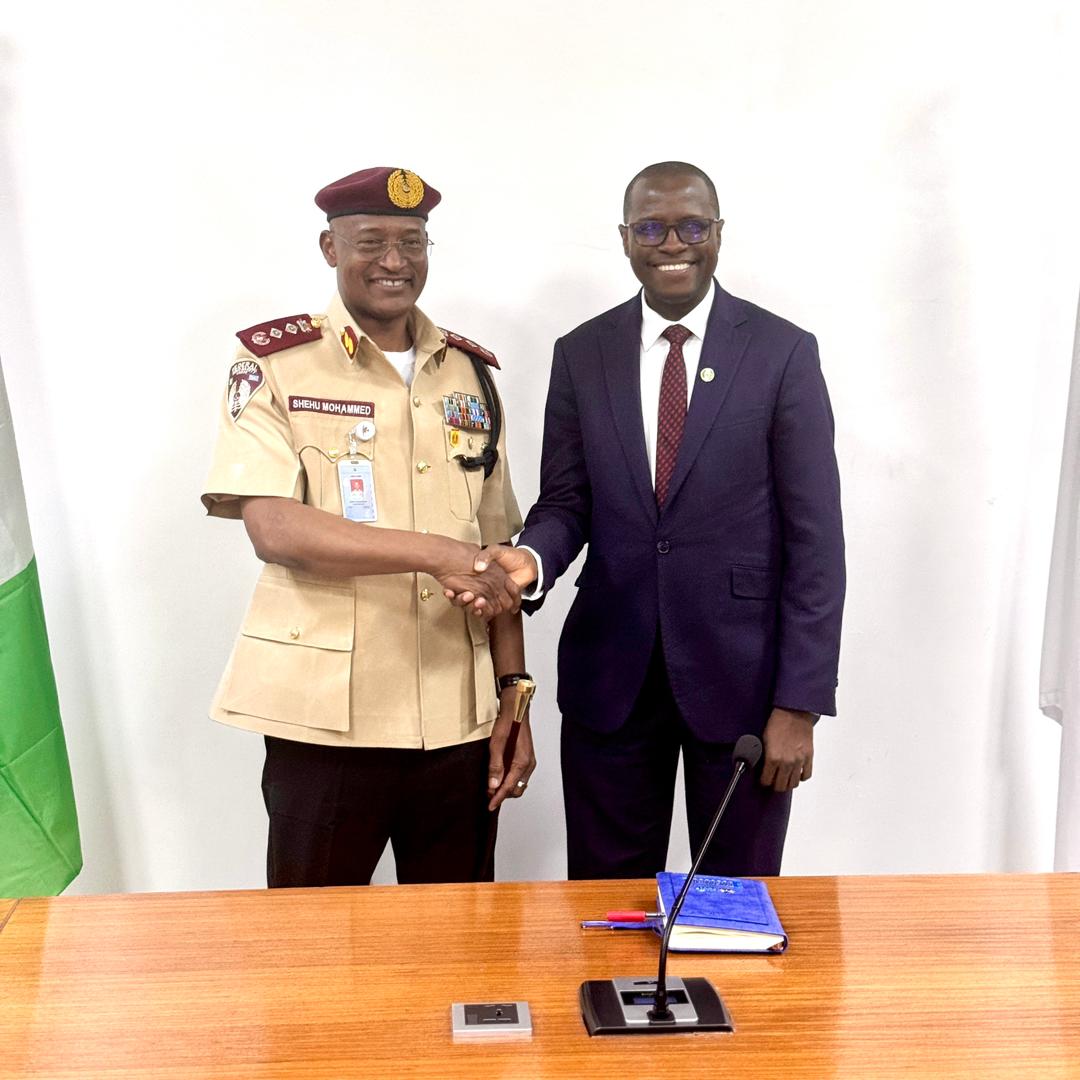Chairman of the Independent Corrupt Practices and Other Related Offences Commission (ICPC), Dr. Musa Adamu Aliyu, SAN, has reaffirmed the Commission’s commitment to strengthening corruption-prevention mechanisms within Nigeria’s transportation sector.
Dr. Aliyu stated this on Monday while receiving the Corps Marshal of the Federal Road Safety Corps (FRSC), Shehu Mohammed, mni, and his delegation during a courtesy visit to the Commission’s headquarters in Abuja.
The ICPC Chairman emphasised that transportation played a pivotal role in national development and public safety, noting that vehicles were frequently exploited in the perpetration of crimes.
Dr Aliyu underscored the need for stronger collaboration between the ICPC, FRSC, and other law enforcement bodies to promote safer roads, greater accountability, and a more efficient national economy.

ICPC boss commended the FRSC for its recent innovations, particularly the Contactless Driver’s Licence Processing System, which significantly reduces corruption risks by minimising unnecessary human interaction.
He also lauded the introduction of the Premium Driver’s Licence Service, noting that improved service timelines have enhanced public trust.
Dr. Aliyu further reiterated ICPC’s readiness to support the strengthening of the FRSC’s Anti-Corruption and Transparency Unit (ACTU), stressing that internal controls and early intervention remain vital in curbing unethical practices across public institutions.
The ICPC Chairman added that staff of the Commission, including official drivers, would benefit from FRSC-led training on safe driving practices and proper road usage, as he directed relevant departments within the Commission to partner with the FRSC on joint sensitisation programmes aimed at promoting safety and integrity.
Earlier in his remarks, the Corps Marshal, Shehu Mohammed, mni, described the FRSC as Nigeria’s foremost agency for road regulation and safety.
He highlighted several ongoing reforms designed to improve service delivery, including the Corps’ capacity to produce up to 25,000 driver’s licences daily, supported by enhanced data-protection measures to prevent identity-related fraud.
Mohammed also explained that the newly introduced FRSC Contactless Licence Renewal Platform reduces physical interaction, speeds up processing, and minimises opportunities for corruption, outlining other innovations such as:
- Standard and Premium Driver’s Licence Options
- Enhanced National Vehicle Identification System (NVIS) for faster vehicle information retrieval
- Improved Passenger Manifest System, designed to strengthen commuter safety and emergency response
In his closing remarks, the Secretary to the Commission, Mr. Clifford Oparaodu, DSSRS, commended the FRSC for its reforms and expressed confidence that the collaboration between both organisations would continue to advance integrity and transparency in the nation’s transport and public-service sectors.


